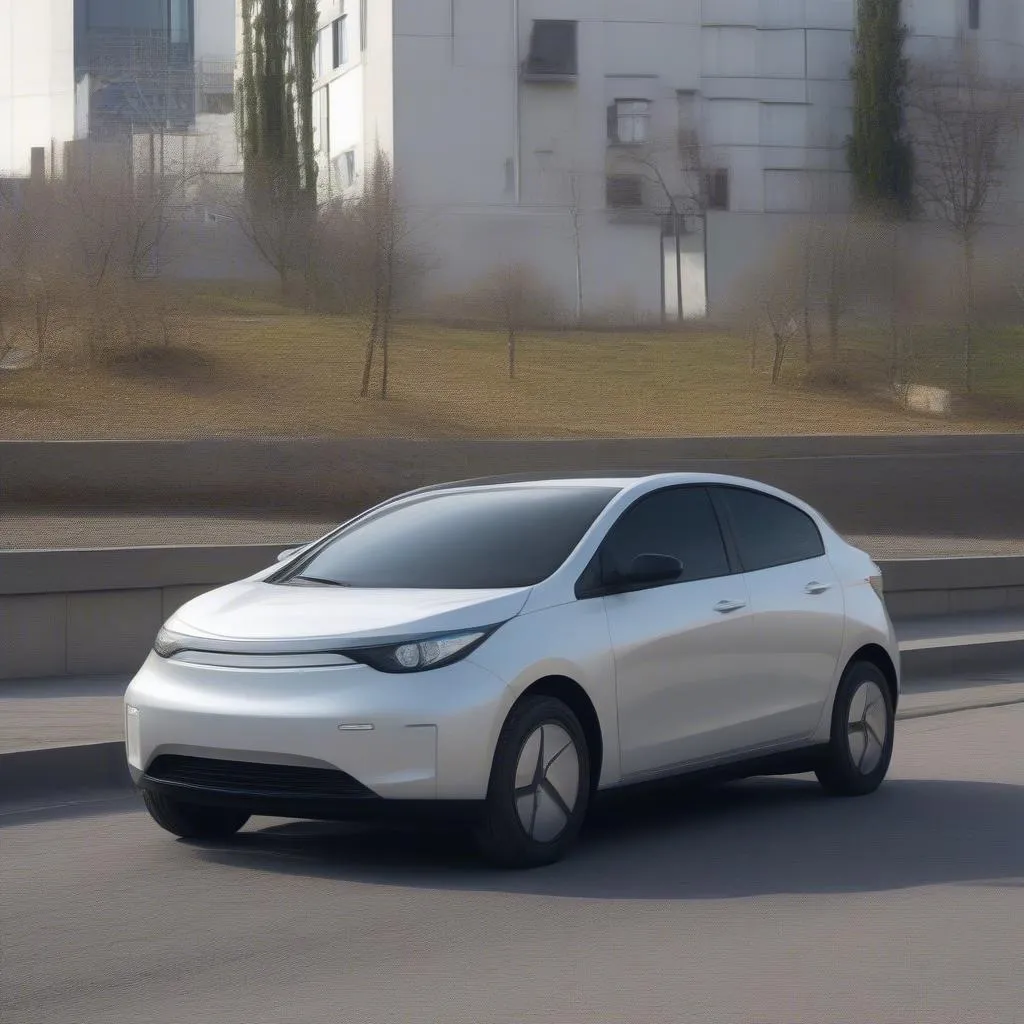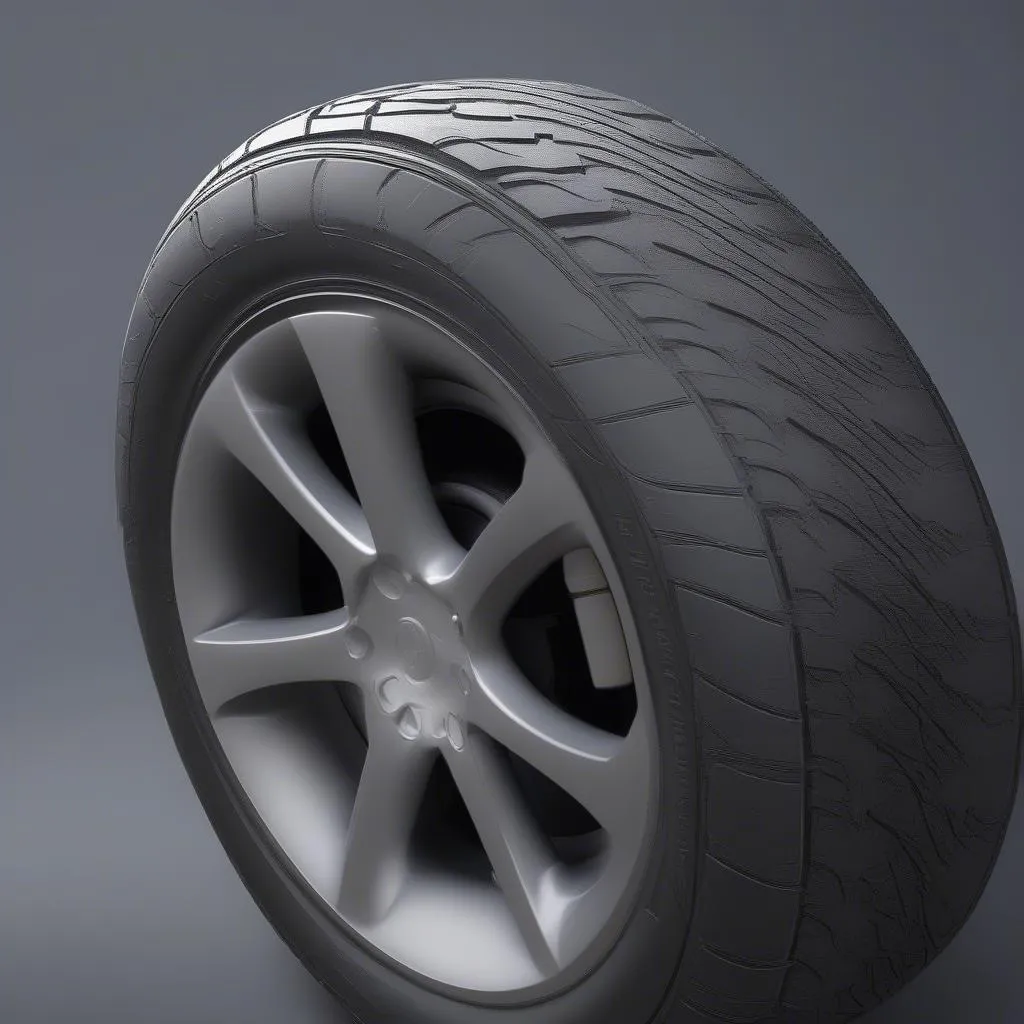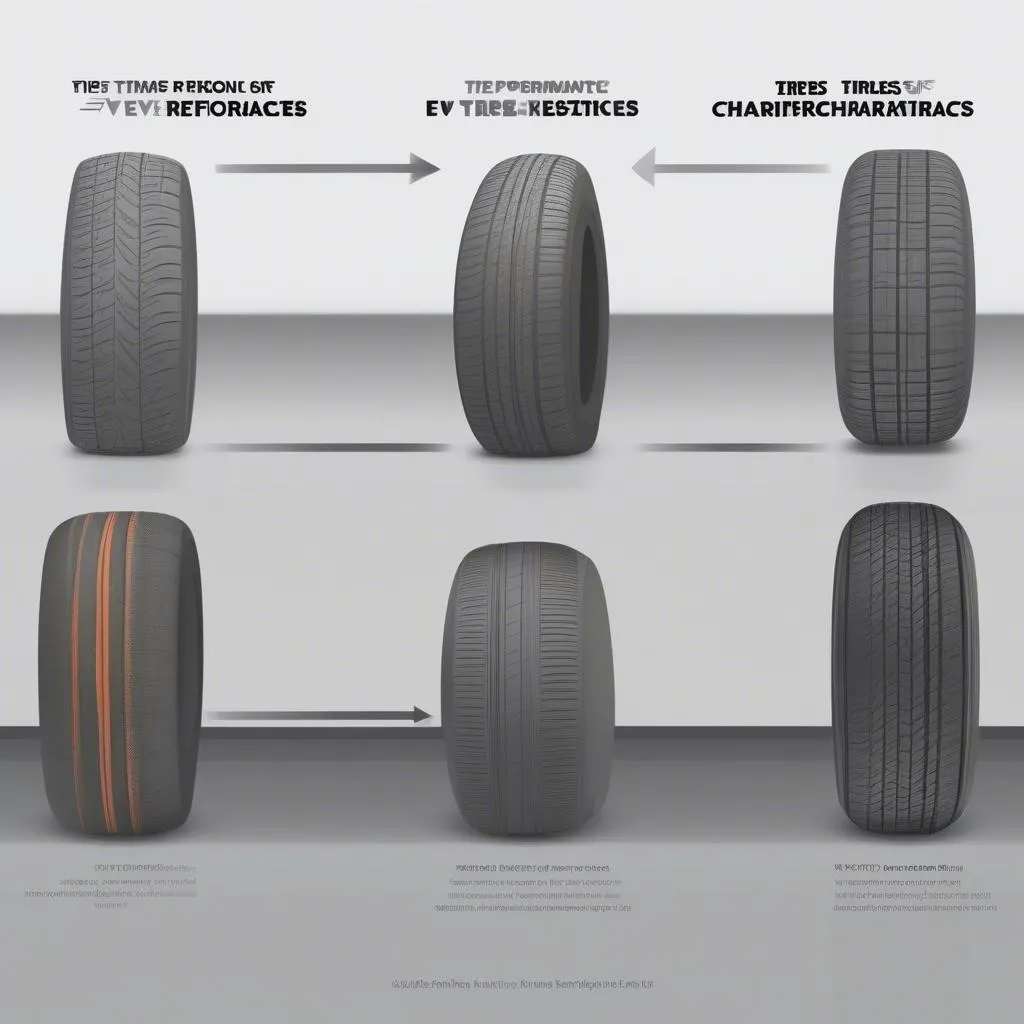Imagine this: you’re cruising down a California highway, the sun shining on your classic Mustang, feeling the wind in your hair. You notice a sign for a Tesla dealership and wonder, “Can I put those fancy EV tires on my old-school muscle car?” This might seem like a strange question, but it actually touches on a core concept in the world of automotive engineering.
The Significance of the Question
This question isn’t just about swapping tires for a cool new look. It delves into the fundamental differences between traditional combustion engines and electric vehicles.
- From a mechanic’s perspective, tires are critical for vehicle performance, safety, and fuel efficiency. Each type of tire is designed with specific characteristics to complement a vehicle’s drivetrain and its intended use.
- From a technical standpoint, EV tires are optimized for the unique demands of electric motors. These motors provide instant torque, leading to faster acceleration and more aggressive cornering. EV tires must handle this increased power, while also contributing to the vehicle’s overall efficiency.
- From an economic perspective, EV tires might seem like an upgrade, but they can come with a higher price tag due to their specialized design.
The Answer: It’s Complicated
The short answer is, “You can put EV tires on a regular car, but it’s probably not a good idea.” Here’s why:
EV Tires are Designed for Specific Needs
EV tires have unique features tailored to EVs, such as:
- Lower rolling resistance: EVs are all about efficiency, so tires are engineered to minimize energy loss through friction, which helps extend range.
- Enhanced grip: The instant torque of electric motors puts a lot of stress on tires during acceleration and cornering. EV tires are built to handle this increased force, preventing slipping and maintaining stability.
- Noise reduction: EVs are already quiet, so EV tires are designed to minimize road noise for a smoother, more comfortable ride.
Regular Cars Have Different Needs
A traditional gasoline-powered car has different needs. While performance is still a factor, efficiency might not be as critical.
- Fuel economy: Regular car tires are designed to prioritize fuel economy for vehicles that don’t have the same range limitations as EVs.
- Handling: Regular car tires are optimized for the different power delivery and handling characteristics of combustion engines.
- Durability: Regular car tires are often chosen for their durability, as they are expected to withstand the rigors of everyday driving for longer periods.
Consequences of Using EV Tires on a Regular Car
While you might be tempted to swap out your tires for the latest EV technology, there are potential downsides:
- Decreased fuel efficiency: EV tires, designed for minimal rolling resistance, might actually increase fuel consumption in a gasoline car.
- Compromised handling: The enhanced grip of EV tires can make your car feel too “sticky” for a regular engine, potentially impacting handling and braking performance.
- Increased noise: EV tires might make your gas-powered car seem louder, defeating the purpose of a quiet ride.
Alternatives to Putting EV Tires on a Regular Car
If you’re looking to improve the performance of your regular car, there are other ways to do it without resorting to EV tires:
- Upgrade your tires: There are a variety of high-performance tires available that are designed for specific types of cars and driving styles.
- Performance modifications: Consider adding performance upgrades like a new exhaust system or suspension modifications to boost your car’s power and handling.
- Invest in a hybrid or electric vehicle: If you’re looking for the ultimate in efficiency and performance, consider switching to a hybrid or electric vehicle.
Common Questions
Q: Can I use EV tires on a hybrid car?
A: While some hybrid cars might benefit from the lower rolling resistance of EV tires, it’s not a guaranteed improvement, as hybrids still rely on combustion engines for a significant portion of their power.
Q: What about EV tires for performance cars?
A: While some performance cars might find the grip of EV tires beneficial, their increased rolling resistance could compromise fuel economy. It’s essential to weigh the pros and cons carefully.
Q: What about the size of EV tires?
A: Not all EV tires are the same size. Make sure you find tires that are compatible with your car’s wheel size and specifications.
Q: Can I mix and match EV and regular tires?
A: It’s not recommended to mix and match EV and regular tires, as this can create handling inconsistencies and safety risks.
Beyond the Tires: A Bigger Picture
The question of EV tires on a regular car is just one aspect of a broader shift in the automotive industry. EV technology is constantly evolving, and with it, new trends in tire design and performance are emerging.
For example: Some companies are developing tires that can adapt to different road conditions and even provide feedback to the driver about tire pressure and other critical information.
The future of tires is exciting, and it’s likely to see even more innovative designs and functionalities tailored to the specific needs of both electric and traditional vehicles.
In Conclusion
While you can technically put EV tires on a regular car, it’s not the optimal solution. Consider the specific needs of your car and the potential downsides before making a decision. If you’re looking to improve your vehicle’s performance, there are other, more appropriate options available.
Stay tuned for more insights into the world of automotive technology.
If you have any questions about EV tires, car maintenance, or other automotive topics, please don’t hesitate to contact us through WhatsApp: +84767531508. We have a team of experts available 24/7 to help you with all your automotive needs.
 EV Tires on Regular Car
EV Tires on Regular Car
 EV Tire Specifications
EV Tire Specifications
 EV Tire Performance
EV Tire Performance